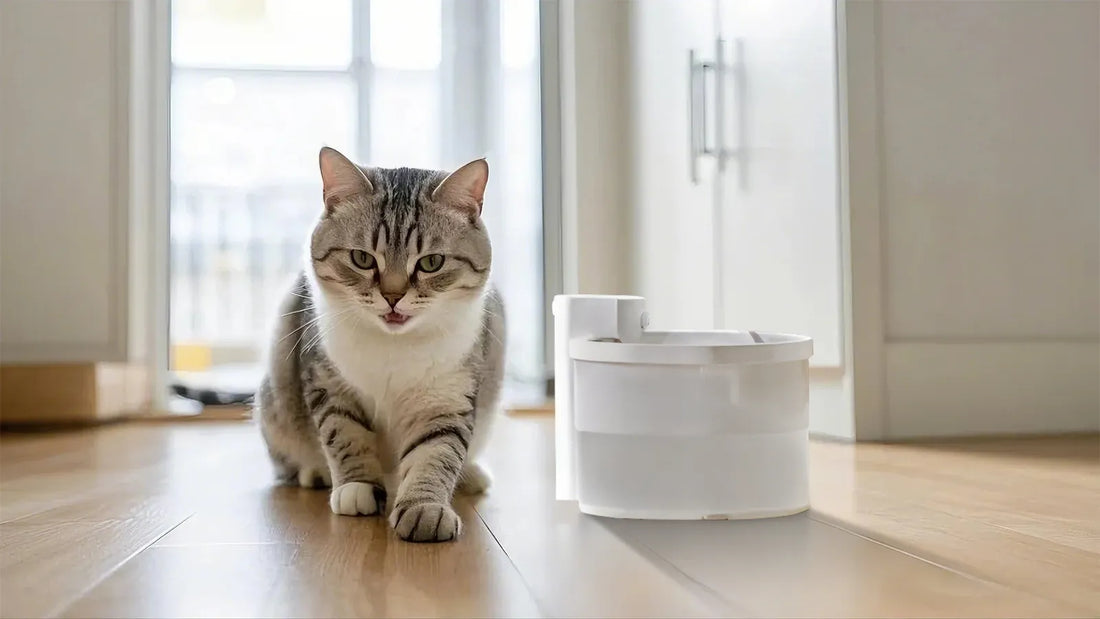As a dog owner, you’ve probably noticed that your furry friend loves to drink water, especially after a long walk or a playful session. But have you ever wondered if your dog is drinking too much water? While hydration is essential for your pet’s health, excessive water consumption can be a sign of underlying issues. This article will guide you through the signs, causes, and solutions to ensure your dog stays healthy and hydrated without overdoing it.
Signs Your Dog Is Drinking Too Much Water
One of the first steps in determining if your dog is drinking too much water is to observe their behavior. Here are some common signs to look out for:
- Frequent urination: If your dog is urinating more often than usual, it could be a sign they’re drinking too much water.
- Increased thirst: A sudden increase in thirst, even when the weather isn’t hot, might indicate a problem.
- Lethargy: Excessive water intake can sometimes lead to lethargy or a lack of energy.
- Vomiting or diarrhea: These symptoms can occur if your dog’s body is struggling to process the excess water.
- Bloating: In severe cases, too much water can cause bloating, which is a medical emergency.
Potential Causes of Excessive Water Consumption
Understanding why your dog is drinking too much water is crucial for addressing the issue. Here are some potential causes:
- Dehydration: Ironically, dehydration can cause your dog to drink excessively as their body tries to compensate.
- Diet: A diet high in salt or dry food can increase your dog’s thirst.
- Medical conditions: Conditions like diabetes, kidney disease, or Cushing’s disease can lead to increased water intake.
- Medications: Certain medications can cause your dog to feel thirstier than usual.
- Behavioral issues: Sometimes, dogs drink excessively due to anxiety or boredom.
How to Monitor Your Dog’s Water Intake
Monitoring your dog’s water intake is essential for identifying any abnormalities. Here’s how you can do it:
- Measure the water: Use a measuring cup to track how much water your dog drinks daily.
- Observe behavior: Pay attention to how often your dog visits the water bowl and how much they drink each time.
- Keep a log: Maintain a daily log of your dog’s water intake to spot any trends or changes.
- Consult your vet: If you notice any significant changes, consult your veterinarian for professional advice.
When to Seek Veterinary Help
While occasional increases in water consumption might not be a cause for concern, persistent excessive drinking warrants a visit to the vet. Here are some scenarios where you should seek professional help:
- Sudden changes: If your dog’s water intake increases suddenly without any obvious reason.
- Accompanying symptoms: If excessive drinking is accompanied by other symptoms like vomiting, diarrhea, or lethargy.
- Medical history: If your dog has a history of medical conditions that could be related to increased thirst.
- No improvement: If your dog continues to drink excessively despite your efforts to regulate their intake.
Preventing Excessive Water Consumption
Preventing your dog from drinking too much water involves a combination of monitoring, diet adjustments, and behavioral interventions. Here are some tips:
- Provide fresh water: Ensure your dog always has access to fresh, clean water.
- Adjust their diet: Consider switching to a diet with lower salt content or incorporating wet food to increase hydration.
- Regular exercise: Regular physical activity can help regulate your dog’s thirst levels.
- Behavioral training: If anxiety or boredom is the cause, consider behavioral training or providing mental stimulation.
- Routine check-ups: Regular veterinary check-ups can help catch any underlying issues early.
By understanding the signs, causes, and solutions for excessive water consumption in dogs, you can ensure your furry friend stays healthy and hydrated. Remember, while it’s essential to keep your dog hydrated, too much of a good thing can be harmful. Keep a close eye on your dog’s water intake and consult your vet if you have any concerns. Your dog’s health and well-being are worth the extra effort!

![[🎃Halloween Sale]UAHPET Stainless Steel Self-Cleaning Cat Litter Box](http://www.uahpet.com/cdn/shop/files/1-cat-litter-box.jpg?v=1759128420&width=1600)












